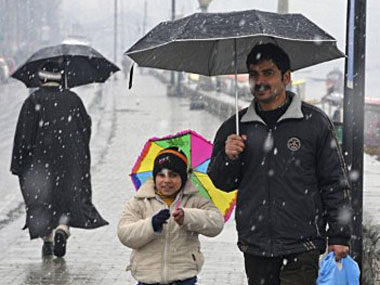“My wife says she loves Billy and I believe that she does, but I’d like to know what law says a woman is a better parent simply by virtue of her sex?” declared Ted Kramer, in the courtroom scene where he battles for custody of his son in the movie Kramer v/s Kramer. The recent judgement passed by the Delhi High Court perhaps resonates with the same sentiment as the 1979 Oscar winning movie Kramer vs.Kramer. The Tis Hazari court ruled in favour of granting custody to the father of the child giving precedence to what the child had to say. The 12-year-old felt her mother scolded her on petty things, which according to the court may push the girl to rebellion in her teens. Guardian Judge Gautam Manan said, “The minor was found to be intelligent in her interaction with the court, has twice stated her wish to reside with the company of the petitioner (father).” Some like Manjula Bhatt aren’t too happy. She sees it as a skewed ruling by the court. Manjula feels the girl is set to enter puberty and would find a woman’s presence far more comforting than a man’s. Manjula is 49, mother of two, and happily married. [caption id=“attachment_77367” align=“alignleft” width=“380” caption=“What happens when the man gets the custody of the child? AFP”]
 [/caption] “I say all power to the 12-year-old. I think it’s about time people understood that a man can be as nurturing as a woman, and maybe even more. And while for most, 12 would be too young, believe me it really isn’t,” says Smriti Chopra. I spoke to Pooja Malviya, Travel Consultant, divorced, and mother of two. Her daughter stays with her ex husband and she prefers it that way. She explains, “For one, I feel the mother was probably frustrated by the situation she found herself in. It’s not easy being a single mother, having a semblance of a life, working, and raising a child, and I don’t think it makes her a bad mother if she couldn’t handle it all. However, what most sceptics need to understand is that today’s 12-year-old can make an independent decision based on his/her life experiences. Most would argue what life experiences are you talking about, but there are situations where a child may have lived a lifetime at such a young age. My daughter is also 12 and she stays with my ex-husband. There was a time when I wanted full custody of my children, but I soon realised how comfortable she was with her father and I wanted her to be happy. We have mutually decided not to go to court and raise our kids according to what they are most comfortable with. My daughter wanted to stay with her dad, and I know the life she’s getting is a good one. I am there for my daughter whenever she needs me and she sees individually happy parents instead of constantly fighting or cribbing ones. Yes, I am a mother, but I do have my life and my daughter’s to think about.” The number of custody battles, much like divorce cases, are on a steady rise. There are special family courts where these sort of cases are routine, however the downside is that even though the state and the law understands the changing times, and the changing nature of relationships, courts still take a good two to three years to reach a resolution. As per The Hindu Minority and Guardianship Act’ 1956 under Section 6, the custody of a minor who has not completed the age of five years shall ordinarily be with the mother. Akshay Mallik, Advocate, Partner, M&M Legal, says, “When a court gives a ruling in favour of either parent at the most important consideration while giving custody, which is, the welfare of the child. Usually chamber hearings between the child and the guardian judge are held on Saturday’s. It’s a relaxed one-on-one time where just the child and the judge talk about everything that is of concern to the welfare of the child. And by law, at the age of 12, a child attains, ‘intelligible differentia’. It essentially means, the child is capable of deciding what’s right and wrong. Also, popular belief maybe that a parent has to be financially strong to win a custody battle, however, other aspects like social, moral, and emotional considerations are also kept in mind.” According to Akshay who’s been practising since 2005, paternal custody is no longer an anomaly, and cites a case he’s currently working on. A mother wanted to take full custody of her five year old daughter and took the case to the courts. She won, but after about three months — when she couldn’t take care of her child because of her work, travelling, and a host of other commitments — she wanted to voluntarily return the custody to the father. Custody battles don’t always involve the parents. Akshay cites a case where the custody matter involved a child under the supervision of her maternal grandparents. The mother got divorced, moved toNew Zealand, where she remarried with kids, while her boy from the previous marriage remained in the care of her parents. Her ex-husband/father suddenly surfaced after 10 years wanting to claim custody of the child. Akshay feels it’s absurd that after almost a decade the father remembered his long lost son. They’ve had three chamber hearings and Akshay knows the boy is going nowhere and is going to continue to stay in the loving and comforting environment his maternal grandparents provide him with. With parents often unsure about their own priorities, it’s perhaps a good sign that the courts are increasingly looking to the child to make their decisions. And it is only fitting that as gender roles shift, both parents put aside old expectations and make decisions that are in the best interests of their child, whether it means ceding custody to father, mother, or grandma.
[/caption] “I say all power to the 12-year-old. I think it’s about time people understood that a man can be as nurturing as a woman, and maybe even more. And while for most, 12 would be too young, believe me it really isn’t,” says Smriti Chopra. I spoke to Pooja Malviya, Travel Consultant, divorced, and mother of two. Her daughter stays with her ex husband and she prefers it that way. She explains, “For one, I feel the mother was probably frustrated by the situation she found herself in. It’s not easy being a single mother, having a semblance of a life, working, and raising a child, and I don’t think it makes her a bad mother if she couldn’t handle it all. However, what most sceptics need to understand is that today’s 12-year-old can make an independent decision based on his/her life experiences. Most would argue what life experiences are you talking about, but there are situations where a child may have lived a lifetime at such a young age. My daughter is also 12 and she stays with my ex-husband. There was a time when I wanted full custody of my children, but I soon realised how comfortable she was with her father and I wanted her to be happy. We have mutually decided not to go to court and raise our kids according to what they are most comfortable with. My daughter wanted to stay with her dad, and I know the life she’s getting is a good one. I am there for my daughter whenever she needs me and she sees individually happy parents instead of constantly fighting or cribbing ones. Yes, I am a mother, but I do have my life and my daughter’s to think about.” The number of custody battles, much like divorce cases, are on a steady rise. There are special family courts where these sort of cases are routine, however the downside is that even though the state and the law understands the changing times, and the changing nature of relationships, courts still take a good two to three years to reach a resolution. As per The Hindu Minority and Guardianship Act’ 1956 under Section 6, the custody of a minor who has not completed the age of five years shall ordinarily be with the mother. Akshay Mallik, Advocate, Partner, M&M Legal, says, “When a court gives a ruling in favour of either parent at the most important consideration while giving custody, which is, the welfare of the child. Usually chamber hearings between the child and the guardian judge are held on Saturday’s. It’s a relaxed one-on-one time where just the child and the judge talk about everything that is of concern to the welfare of the child. And by law, at the age of 12, a child attains, ‘intelligible differentia’. It essentially means, the child is capable of deciding what’s right and wrong. Also, popular belief maybe that a parent has to be financially strong to win a custody battle, however, other aspects like social, moral, and emotional considerations are also kept in mind.” According to Akshay who’s been practising since 2005, paternal custody is no longer an anomaly, and cites a case he’s currently working on. A mother wanted to take full custody of her five year old daughter and took the case to the courts. She won, but after about three months — when she couldn’t take care of her child because of her work, travelling, and a host of other commitments — she wanted to voluntarily return the custody to the father. Custody battles don’t always involve the parents. Akshay cites a case where the custody matter involved a child under the supervision of her maternal grandparents. The mother got divorced, moved toNew Zealand, where she remarried with kids, while her boy from the previous marriage remained in the care of her parents. Her ex-husband/father suddenly surfaced after 10 years wanting to claim custody of the child. Akshay feels it’s absurd that after almost a decade the father remembered his long lost son. They’ve had three chamber hearings and Akshay knows the boy is going nowhere and is going to continue to stay in the loving and comforting environment his maternal grandparents provide him with. With parents often unsure about their own priorities, it’s perhaps a good sign that the courts are increasingly looking to the child to make their decisions. And it is only fitting that as gender roles shift, both parents put aside old expectations and make decisions that are in the best interests of their child, whether it means ceding custody to father, mother, or grandma.
Custody battles: When the man gets the child
Pratishtha
• September 6, 2011, 17:11:37 IST
The number of custody battles, much like divorce cases, are on a steady rise. What happens when courts grant custody rights to a father instead of the mother?
Advertisement
)
End of Article